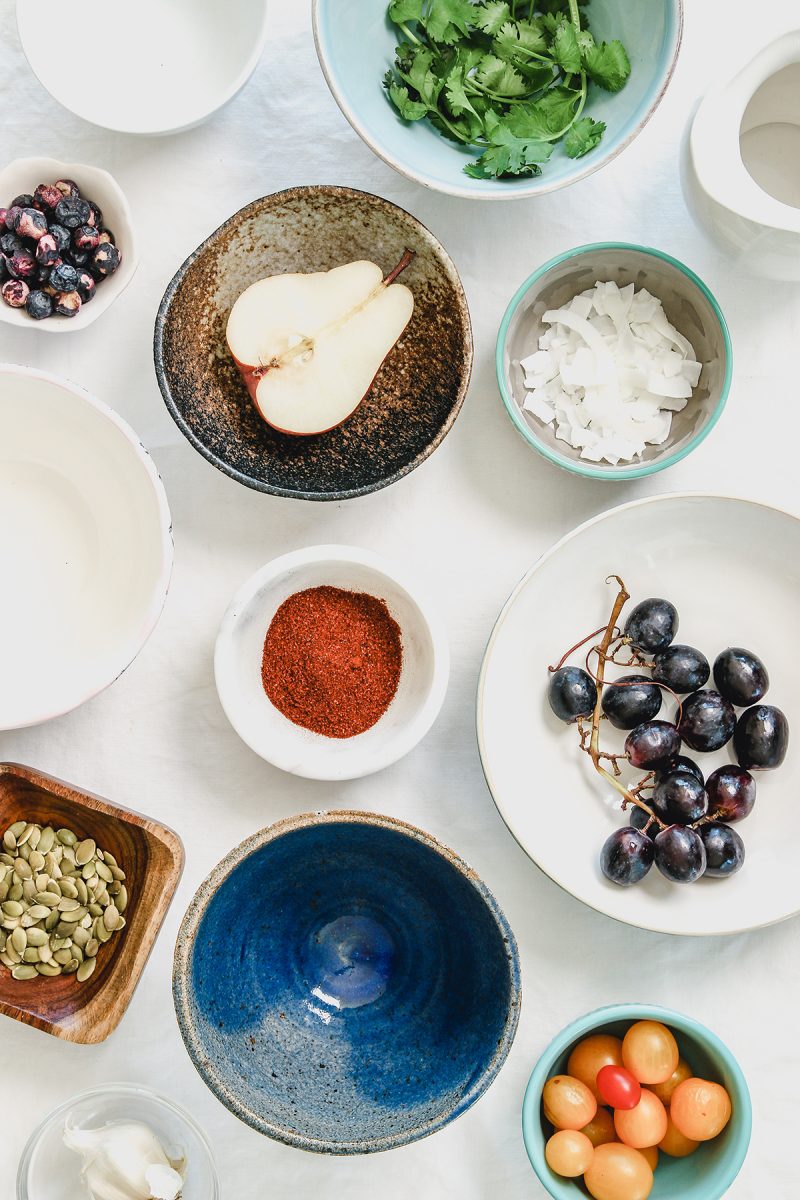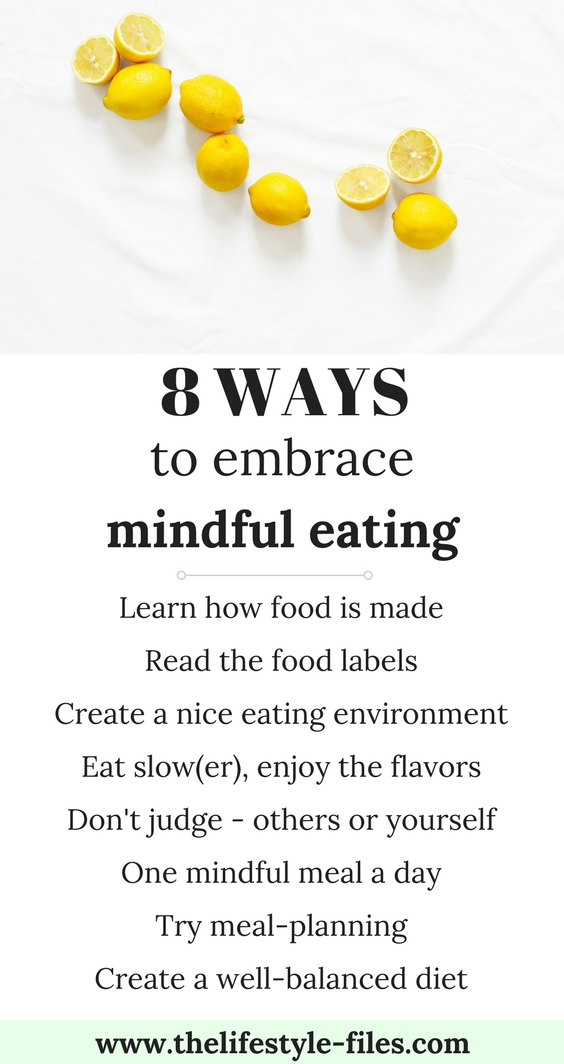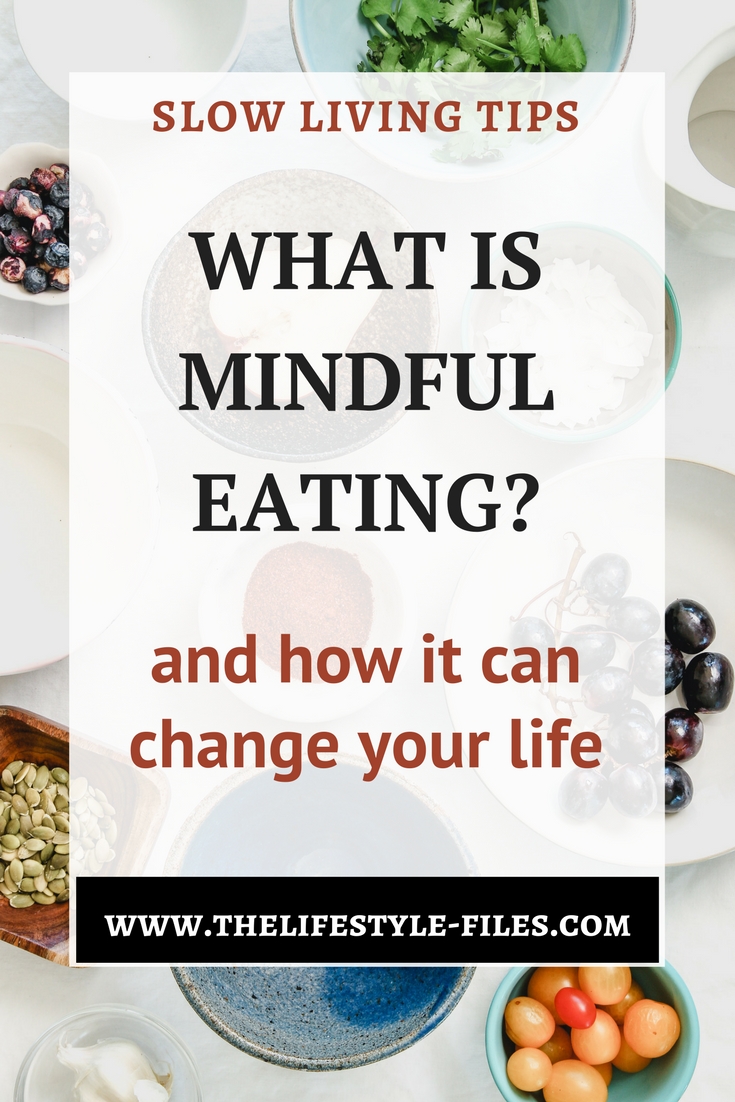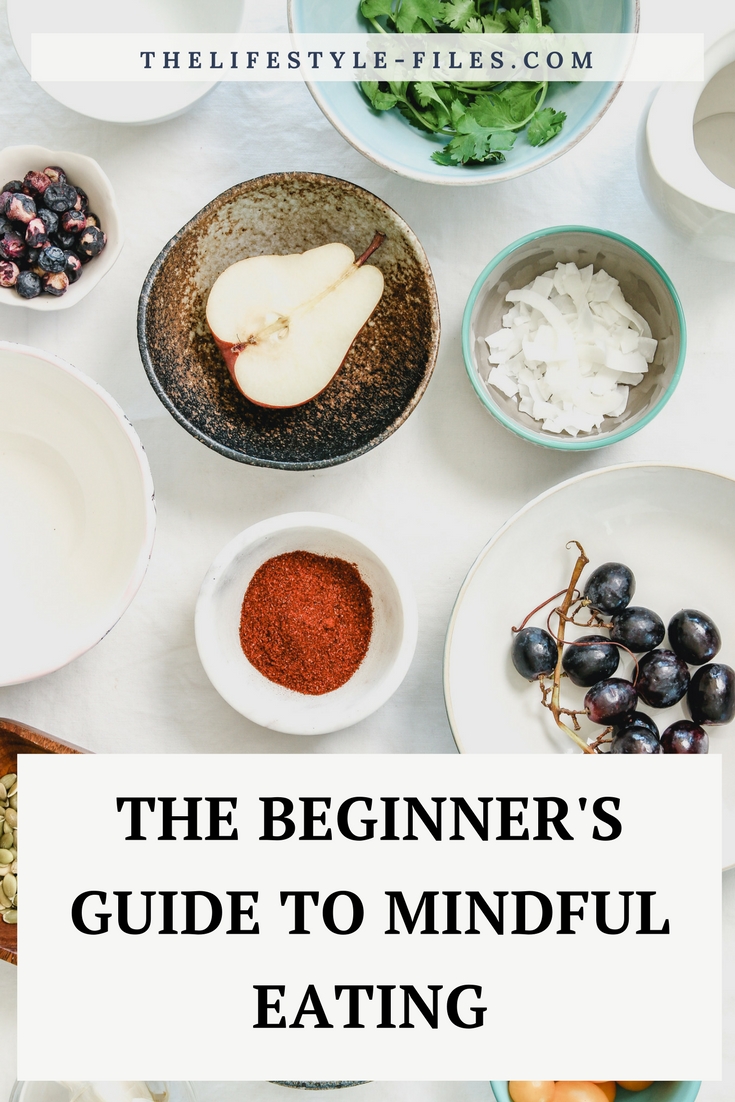
Weekend lunches have always been an important thing for our family. My parents love cooking and they always went all out for Saturday/Sunday lunches. It started with a trip to the farmers market, coming up with new culinary ideas and recipes on the spot based on what fresh produce they had that day, a couple of hours of cooking, and then a long lunch as a family, sometimes with friends coming over.
It was truly a celebration of food and having a good time.
Even though I don’t live at home anymore, I still try to set aside time for the Saturday or Sunday lunches, but I have to admit, my weekday eating routines are a lot less ceremonial in this regard. More often than not, I eat while watching a TV show, reading something on the computer, or simultaneously fiddling with my phone, or even worse, in the car on the go.
And there’s nothing wrong with doing that, until it becomes the norm and not the exception. Because I realized that apart from the weekend family lunches, I don’t particularly enjoy my meals anymore. They became a necessity and not a source of enjoyment.
So, when I first read about mindful eating in an older New York Times article, I was intrigued and determined to make it a part of my life.
Mindful eating is rooted in the practice of mindfulness and Buddhist meditation practices, but in reality, it’s less spiritual than it sounds and definitely does not require us to meditate before dishes or consume our dinner in utter silence. It’s simply about encouraging people to focus more on experiences and moments, appreciate small joys, and develop some kind of consciousness about what we are eating, why, and how.
While it’s definitely not a new concept for practitioners of mindfulness, it’s slowly making waves in the mainstream health industry with a growing body of research showing that it can contribute to developing healthy eating habits and a more balanced relationship with food.
What exactly is mindful eating?
Mindfulness has become a quite popular buzzword lately. But as it is the case with many, especially lifestyle-related, buzzwords, it can sometimes seem a little too obscure.
And I don’t like obscure. I like concrete, tangible, and practical. That way I feel I can grasp their meaning, can relate to them, and can have a much better chance of actually incorporating them in my life. So when it comes to mindful eating, here’s what it means to me personally:
+ Thinking of food not only as a necessity, but also as a source of enjoyment. Appreciating the flavors, smells, colors, and the amount of work it takes to prepare a good meal, as well as elevating the act of eating it to an enjoyable experience.
+ Being in sync with my body and treating it well. Knowing what it needs in order to function well (not just what I should eat, but also how I should eat). This includes knowing how much food I need or how many times I have to eat a day. This is deeply personal and we all have to learn to decode our own physical cues and triggers when it comes to eating. For example, experts might say it’s better to have smaller meals throughout the day, but it’s simply not working for me – I’m perfectly fine with 3 regular meals. It doesn’t mean I cannot be healthy this way.
+ Educating myself about food and knowing where it came from. Being informed about basic nutritional information, reading the food labels, knowing how food is made and where it comes from. Knowing what’s in season is also an essential, often overlooked part of this – buying seasonal produce is important for our health (the nutritional values are the highest), for the environment (supports local production and thus means less traveling, hot houses, forced ripening), and for our budget (seasonal produce is usually cheaper).
+ Smart food shopping and decreasing food waste. Being mindful for me is not just a spiritual motto or a personal growth tool, but also encompasses a wider understanding of the consequences of my lifestyle choices. Planning meals and shopping accordingly, as well as trying to minimize my food waste are thus important factors for me.
Why we need to practice more mindfulness in our eating habits
If we’re being honest with ourselves, gobbling down food at a lightning speed doesn’t actually feel good. Or at least it reduces eating to a necessity. And while food IS definitely a necessity, it can also be so much more.
It’s an important part of our culture, a source of creativity, a sensual experience, and a social experience as well. How and what we eat is important for our body, for our well-being, for the economy, and the environment as well.
Infusing a little mindfulness into eating can help us develop a more balanced relationship with food. It can help us learn how to listen to and understand our body cues when it comes to hunger or fullness and reduce stress or binge-eating. It can transform seemingly ordinary moments into nice little experiences. And I think it can also help us become smarter, more conscious consumers in a way.
8 practical tips to embrace mindful eating
Get first-hand experience of how food is made //
I’m a big fan of farmers markets. It’s such a different experience then getting your fruits, vegetables, or other fresh produce in a plastic bag in a sterile supermarket. The food you get at the market is a lot more authentic and fresh, you can support local, smaller farmers, get to know them and learn about their techniques. (Pro tip: if you develop a good relationship with them, they will totally save and recommend their absolute best produce to you).
Another way to get more intimate with food is to organize fun experiences, like going to pick-your-own farms, food festivals, participating at a vine harvest or special food experience trips. When you’re traveling it’s also worth checking out the many local food opportunities. When we were on a Tuscany road trip, our preferred accommodations were the so-called agriturismo houses – independent farms that also offer gorgeous lodging. You really get a newfound appreciation for fresh food when you have freshly picked figs, locally produced olive oil, or fresh mozzarella and tomatoes for breakfast.
Read the food labels //
Know where it’s from, how it was made, and what’s actually in it. Decoding any kinds of labels can often seem like a challenge, but in reality, we only have to learn the basics, and all those scientific words become less frightening and easily digestible.
Create a healthy eating environment //
Taking the time to prepare a good meal, setting the table, using simple, but beautiful tableware, having a good discussion can all help inserting a little mindfulness into our eating habits.
Practice slow(er) eating //
Try to set aside ample time for your meals, regard it as a chance to relax and rest. Eat without distractions, chew your food thoroughly. Appreciate the sensory experiences – the smell, flavors, colors, and texture. Cutting up your food into smaller pieces is also a good technique that can help slow down your eating pace.
Don’t judge – others or yourself //
I already wrote about why it’s important to stop food shaming. But it’s also important to go easy on our own food choices. Acknowledging weight or health issues, as well as bad eating habits and trying to actively change them is one thing. But in our eternal quest after a healthy lifestyle, it’s also easy to go overboard and feel bad about every single, not textbook-healthy eating choice.
Mindfulness for me is about balance. I’ve never looked at it in terms of percentages, but if the majority of time we’re eating nutritious food, we get the necessary proteins, vitamins, fiber etc, there’s absolutely no need to feel bad about also eating anything sugary, fatty, or whatever we feel like treating ourselves to. Go all in, if you decide to have that triple-chocolate cake, don’t ruin the experience by feeling bad about it later.
One mindful meal a day //
I think it’s not totally realistic to suggest we eat all our meals in a proper, sitting down, slow way, but we should still aim for eating more often like that. Especially if we have the time, are at home, or eating together as a family. Start with one meal per day – take the time to prepare it nicely, shut out distractions (like the TV or your phone), eat it slowly, actually pay attention to the food in front of you, and enjoy the experience. I’d say my daily tea ritual was my first baby step towards mindful eating.
Become much better at meal planning //
This is one area that I really need to focus on in the future. Luckily, we’re not really guilty of overbuying and throwing out food, we actually do the opposite – not buying enough and making daily trips to the store if we would like to have dinner. In a way, it may be the least of two evils, but it’s still incredibly annoying.
Meal planning is a great way to be mindful about the way we eat and shop. It makes us think more about what kind of food we’re going to eat or prepare in the upcoming days. It can save us money because we can shop with an actual list and not wander around aimlessly in the grocery store, buying anything and everything we see. It can also significantly reduce food waste.
Create a nutritionally well-balanced diet //
I’m not a nutritionist expert by any means, but I’ve read enough of this topic to have at least a fair understanding of what kind of nutrition our body needs. Moreover, I also realized throughout the years that the more well balanced my diet is, the less cravings I have for various snacks. I can only offer my usual mantra: Research, research, and research some more.
Do you practice mindful eating?







Your blog is seriously one of the most beautiful one I have seen!! Very nice!
This post really resonates with me as well because I have been trying to eat very mindfully because I feel like if I am not careful it can be dangerous since it’s easy to overeat! I think the tip that I love the most is read the food labels! It’s very sad how bad some of the “food” we eat now!!!
Thanks for the motivation!
You’re so nice, thank you so much for saying that, it really means a lot. It’s sad that we have to be careful and really do our research, because some companies are so shady about their businesses. But it’s also a great feeling to be knowledgeable. Hope you have success with this mindful eating thing:)
xx
I try to practice mindfully eating! When it comes to WHAT I eat, it’s become a lot easier to listen to my body and what it wants and oftentimes, I don’t really want that cookie!
I need to be more mindful and have sitdown meals more often. That’s something I’d like to do but I haven’t been consistent with it..
Seppy | http://www.elleisforlove.com
Yes, it’s difficult to stay consistent. I am now working from home full time so I made it a rule that I properly sit down for lunch, otherwise I’d spend that time in front of the computer as well. Consistency is definitely key, but I hope soon it becomes a habit and then it doesn’t really require that much of an effort!
xx